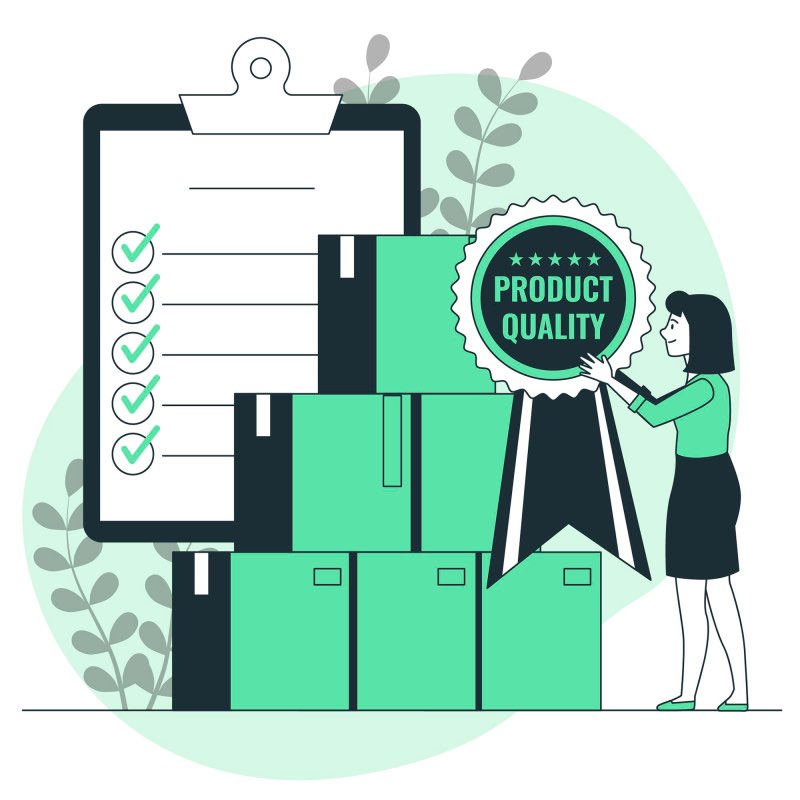Before you can start selling your product or service, you first need to know what it is. Sounds simple enough, but many business owners don’t take the time to understand their product or service before diving into sales. This can lead to a lot of wasted energy and effort in selling. In this blog post, we’ll explore conceptual selling and how you can use it to better sell your product or service. Stay tuned!
What is Conceptual Selling?
Conceptual selling is a process of selling that focuses on the customer’s needs and wants rather than on the features and benefits of the product or service. In other words, it’s all about solving the customer’s problem, not just about selling them something. This approach to sales is based on the belief that customers don’t care about the features of a product or service. They only care about how it will solve their problem.
As the sales process progresses, the salesperson gathers more and more information about the customer’s needs, wants, and problems. This information is used to tailor the sales pitch in your selling process to the specific customer, ensuring that the solution offered is exactly what they need.
The goal of conceptual selling is to establish a long-term relationship with the customer, based on your selling process, providing them with the best possible solution to their problem. This approach to sales is often used in complex sales, where the customer’s needs are not always immediately apparent and require a more consultative approach.
As for a customer buying process, it can be said that conceptual selling helps the customer understand their needs on a higher level and see how your product or service is the best solution to meet those needs.
The Benefits of Conceptual Selling
Now you know the definition of conceptual selling, and it is important to know the benefits of this sales technique. Here are the main benefits of conceptual selling.
Increases the value of your product
The first benefit of conceptual selling is that it can increase the perceived value of your product. This is because when you use this technique, you are not just selling a product, but you are also selling an idea or a concept. This makes the customer feel that they are getting more than just a physical product and that they are also getting something valuable in terms of the idea or concept. A client focused on the benefits of a product is more likely to overlook its faults. Even if your customer interactions and product demonstrations are not perfect, the customer will be more forgiving and see the potential in your offering if you have presented it conceptually.
Helps you sell to resistant customers
Another great benefit of conceptual selling is that it can help you sell to customers resistant to buying. This is because when you use this technique, you can engage the customer in a dialogue about their needs and wants. This way, you can understand their resistance and address it directly. By doing this, you will be able to overcome the customer’s resistance and make the sale. Suppose, for example, that you are selling a new car to a customer who is resistant to buying. You can use conceptual selling to engage the customer in a discussion about their needs and wants. This way, you will be able to understand their resistance and address it directly. By doing this, you will be able to overcome the customer’s resistance and make the sale.
Do you want to close more sales through conceptual selling?
Contact Growth Hackers
Helps you to understand your customer’s problem
In both a sales process and a conceptual selling process, the salesperson strives to understand the customer’s needs. However, in conceptual selling, the salesperson goes beyond understanding needs and proposes solutions that meet those needs. If you can understand your customer’s problems, you will be in a much better position to sell them a solution. Start by asking lots of questions and listening to the answers.
Look for clues in both what they say and how they say it. Pay attention to their body language, as this can be telling. Try to put yourself in their shoes and see things from their perspective. When you use conceptual selling, you can build trust and credibility with the customer. This is because you are not just selling them a product, but you are also selling them an idea. This way, you can establish yourself as an expert in your field, and the customer will see you as someone who can be trusted. If your sales planning process includes conceptual selling, you can build trust and credibility with the customer, making it easier to sell your product.
Differentiates you from your competition
In a world where products are often commoditized, it is important to find ways to differentiate your product from your competition. Conceptual selling can help you do just that. Using this technique, you can position your product in a way that is unique and different from your competition. This will make it easier for you to sell your product, as customers will see it as different and more valuable. The conceptual selling book, Differentiate or Die, by Jack Trout and Steve Rivkin, provides excellent insights on how to position your product uniquely.
How to Use Conceptual Selling to Sell Your Product or Service
If you want to use conceptual selling to sell your product or service, you can do a few things.
Have a clear understanding of what your product or service is
When you conceptualize your product or service, you need to be able to explain it in a way that is easy for potential customers to understand. This means having a clear understanding of what your product or service is and how it can benefit the customer. Start by asking yourself what need your product or service fills and how it is unique from other products or services on the market. A sales team that understands the product or service can better sell it to potential customers.
Find out what the customer wants
The key to successfully selling a product is to find out what the customer wants. This may seem obvious, but many salespeople try to sell a product without first understanding the customer’s needs. You can learn what the customer wants and needs by taking the time to ask questions and listen to the answers. Only then can you offer a solution that meets those needs. A weak sales forecasting accuracy will damage the business performance and morale.
No matter how effective the sales team is, they’ll always be guessing if they don’t know what product to sell to whom. Usually, in enterprise sales strategies, the customer engagement process starts with analyzing a potential buyer’s needs. The account manager or sales representative must be an expert on the products and services that their company offers and the industry trends to give context to the conversation.
Be knowledgeable about your competition
To sell your product or service, you need to know your competition. This means understanding what they are selling and how they are selling it. Only then can you position your product or service in a way that is advantageous to you. Knowing your competition will also allow you to anticipate their moves and make counter-moves that will keep you one step ahead. A sales training course can help you learn more about your competition and how to sell against them. A different sales training program can be very helpful in this aspect. Some effective sales training classes that can be useful are SPIN Selling, Consultative Selling, Value-Based Selling, and Customer Centric Selling.
Use visual aids
Visual aids can be a great way to help explain your product or service to potential customers. By using charts, graphs, or other visuals, you can help potential customers understand your product or service in a way that is easy for them to understand. Additionally, visual aids can help you make a more persuasive case for your product or service. A consistent best practice behavior for using visual aids is to ensure that they are clear, concise, and easy to understand. No matter how complex the data is, it should be presented in a digestible way for the buyer.
Make a connection with the customer
You need to connect with the customer to sell your product or service. This means establishing rapport and building trust. Rapport can be established by finding common ground with the customer. This could be as simple as sharing a similar interest or having a common experience. Once rapport has been established, you can build trust by being honest and transparent with the customer. It is important to remember that selling is not about manipulating customers into buying something they don’t want or need.
Not sure how to get started with conceptual selling? Don’t worry, we’ve got you covered!
Be prepared to answer any objections that your customer may have
No matter how well you know your product or service, there will always be potential objections that the customer may have. It is important to be prepared to answer these objections in a way that is satisfactory to the customer. You can do this by having a solid understanding of your product or service and your competition. Additionally, it is important to be able to anticipate the customer’s objections and have a plan for how you will address them.
Close the sale
After you have addressed all of the customer’s objections, it is time to close the sale. This can be done by asking for the customer’s business directly. For example, you could say, “Based on everything we’ve discussed, I think our product would be a great fit for your needs. Would you like to go ahead and place an order?” Another way to close the sale is by giving the customer a specific call to action. This could be something like, “I’ll send you over some more information about our product, and we can set up a time to discuss it further.” Your sales reps should be trained on the best closing techniques for your product or service.
Final Words on Conceptual Selling
As we’ve seen, conceptual selling is a powerful tool that can help you close more deals and boost your sales numbers. By understanding your customer’s needs and motivations, you can create a custom solution that meets their specific requirements. If you’re not already using conceptual selling in your sales process, we recommend it.
Growth Hackers is an award-winning growth hacking agency helping businesses from all over the world grow. There is no fluff with Growth Hackers. We help entrepreneurs and business owners successfully apply conceptual selling, increase their sales, generate qualified leads, optimize their conversion rate, gather and analyze data analytics, acquire and retain users and increase productivity. We go further than brand awareness and exposure. We make sure that the strategies we implement move the needle so your business grow, strive and succeed. If you too want your business to reach new heights, contact Growth Hackers today so we can discuss about your brand and create a custom growth plan for you. You’re just one click away to skyrocket your business.








